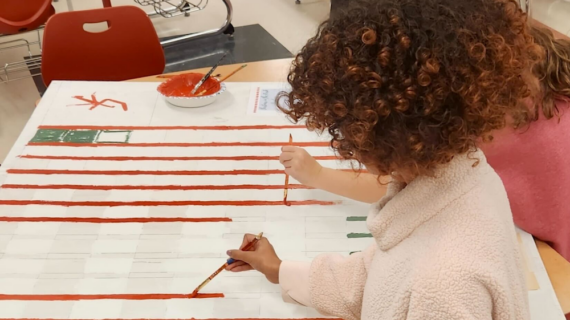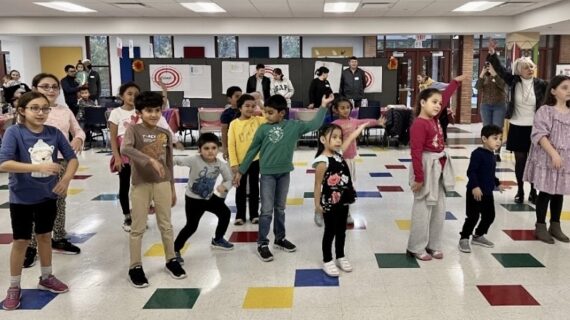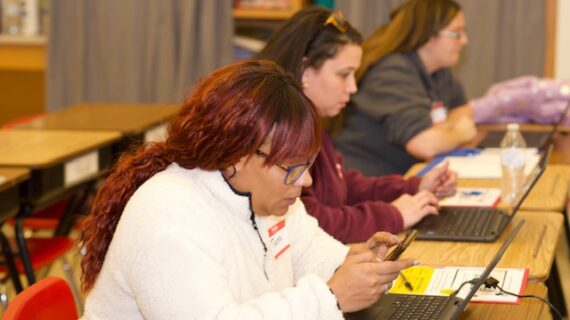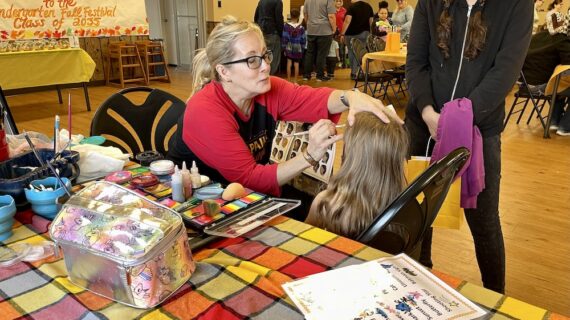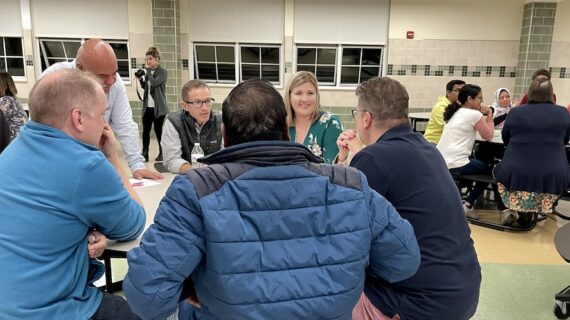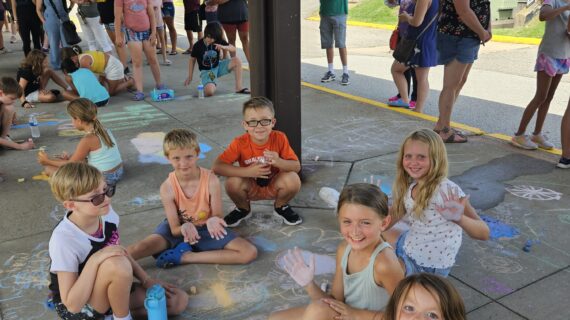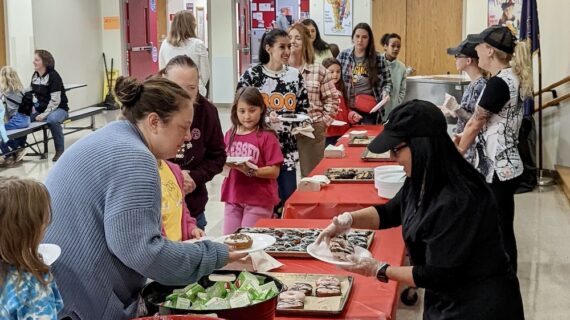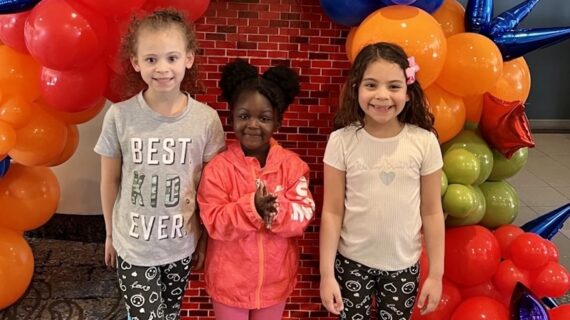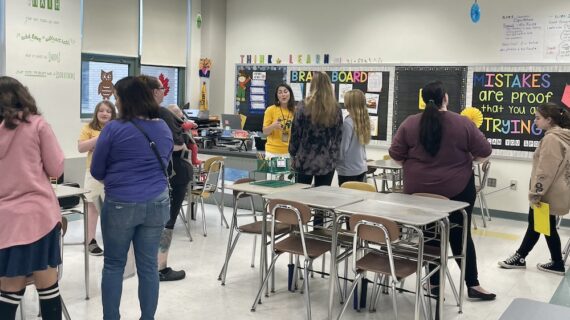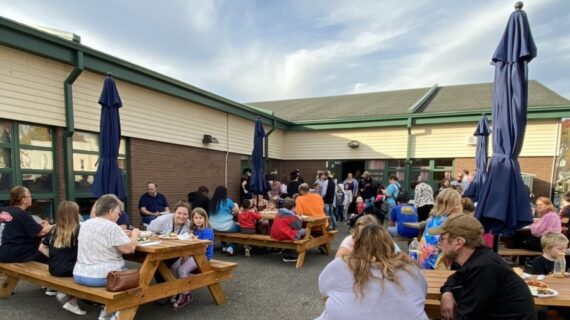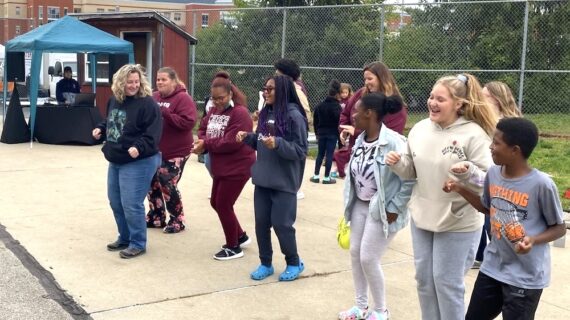
Parents as Allies: Forging new friendships in the evolving community of Hopewell Area
Photos from Hopewell Elementary PAA event courtesy of Parents as Allies.
The folks at Hopewell Elementary have been thinking about equity for years, asking themselves: What does it look like to make sure our schools are places where every student has the opportunity and support to really flourish?
But Hopewell Elementary principal Korri Kane knew that even more was needed. So when she heard that Kidsburgh, a site that she knew provided valuable information to local parents, was diving into the subject of family-school engagement, she wanted to get involved.
Participating in Kidsburgh’s Parents as Allies family-school engagement project seemed like a good move to Kane at a time when her district continues to evolve. A decade ago, Kane says, Hopewell was 95% Caucasian and and 5% Black, Hispanic, Asian, and other ethnicities. But once Shell began building its plant in Hopewell, a diversity of new students arrived.
“How can we make these families and students feel welcomed?” Kane asked herself and her team. “How do we make sure that students see themselves in our school?”
WHAT DID THEY TRY?
One key, the team realized, was building substantive connection and engagement with new families. If parents and teachers can get to know each other and have easy ways of connecting, that’s when a diverse group of people can begin to feel like a community – and support kids as they learn and grow.
Hopewell’s Parents as Allies (PAA) team was practical. They brainstormed about events and projects that would leverage things that were already happening in their building, so they wouldn’t need much funding – perhaps none at all.
It was 2021 and as young students returned to elementary school buildings throughout the Pittsburgh region, people were both eager and nervous about gathering. The team thought about that, and also considered what they knew about elementary schoolers: Kids love making things. They love playing and getting dirty and being creative.
“We let this be our guiding principle,” Kane says, and it worked. An enthusiastic crowd arrived for the first PAA event, Family STEAM Night, an all-families-welcome gathering for grades K through 4. Along with STEAM activity stations run by parents and former students, the team invited folks from family-oriented businesses in the surrounding communities to set up tables and share about their offerings.
One key: Although families were playing with technology together at some of the stations, the night was otherwise tech-free – folks were asked to put away their mobile phones. So rather than scrolling on the devices in their pockets, Kane says, parents, kids and school staff just enjoyed one another and had a great experience.
“Seeing the parents be involved with their kids was wonderful,” Kane says. “It was also fun to see the parents get competitive at the STEAM stations and really get into it.”
A group of teachers also attended, collaborating with families on creative projects to build that vital parent-school connection that had been hard to forge during the pandemic.
That connection can be hard to measure, but the PAA team saw tangible feedback. The turnout was so huge that the team had to run out and buy more supplies mid-event. And as soon as it ended, kids were asking: When are we doing this again? And parents began asking if they could help plan whatever gathering came next.
So more events were planned, including a spring arts event with arts-and-crafts stations, where the school district’s drama department let kids try on theatrical costumes.
The lesson was clear: Opportunities to gather with families don’t have to be elaborate or expensive. They can happen at any time of year and can include all kinds of activities. The key is welcoming people as friends and neighbors, and ensuring that families and school staff can bond over much more than just grades and kids’ behavior.
“I can’t stress enough how important it is to have families involved,” Kane says. “Don’t let barriers prohibit you from doing something that brings families into the school.”
WHAT WOULD THEY TELL OTHER SCHOOLS?
- No matter what kind of event you have in mind, take time for planning and try to anticipate as many things as you can. “Be really thoughtful on how you plan the activities,” Kane says, “and that you’re looking through the lens of asking if every child can participate in the event.”
- Make it fun for both the kids and the parents, and don’t plan anything that some families can’t afford. As in many communities, about 40% of Hopewell families receive free or reduced lunch. So it was important to the PAA team to plan events that were cost-free for families.
- Make sure every child feels connected at the event. If you see someone who doesn’t seem to know quite how to join in, go say hello.


